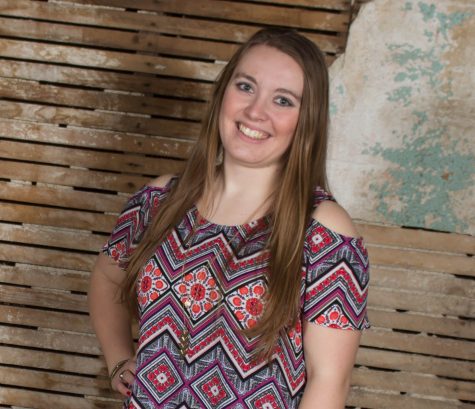Religion: The word that is never spoken
March 8, 2017
I was in class one day, and we were discussing a novel that we had read. As we discussed the possible morals, political beliefs, and values expressed in the book, it was suggested that it might have some religious undertones. It seemed that as soon as that word—religious—was spoken, the whole room got quiet and apprehensive. Everyone was afraid to speak and those who did spoke slowly, carefully choosing each word in their mind before saying it. This kind of caution was not shown when we discussed the other themes of the novel. Later that day, one of my classmates confided in me that she had felt uncomfortable when the religious subject came up. She told me that her faith was important to her, but she did not feel like she should, or could, talk about it.
Does anyone else see a problem here? Not many have a problem voicing their opinion about some popular trend or political issue. People are not afraid to get in arguments over the Internet. Whole communities have been protesting all over the country about morals and politics and diversity. We have the freedoms of speech and the press, allowing us to say really whatever we want whenever we want. But for some reason, as soon as the word religion comes up, the social media posts stop getting “likes,” and the loud shouts become whispers. Nobody wants to talk about it. Nobody wants to discuss what they believe and why they believe it. Nobody wants to offend someone by bringing up what they believe or be offended by somebody who doesn’t believe the same thing. In my opinion, that’s crazy! People should not feel like they cannot speak of their faith and what they believe in. In fact, they should feel completely comfortable with being open about their faith. Why, you ask? Not only are our beliefs a part of who we are, but sharing them with others allows us to learn more about one another and grow in community, something our country is in desperate need of.
Everyone grows up differently with different ideals, values, and goals instilled in them. Though they may be different, these are all details that make us who we are. The same goes for our religion. What we believe in is what inspires and influences us in what we say and do. It is a part of who we are, and we need to embrace it. So what if you believe in God and someone else believes in Allah? Who cares if you believe that all living things have souls and someone else believes only humans do? It is a part of who you are and who he or she is, and there is nothing wrong with that. You both should own up to your beliefs and be proud of your faith. It makes you who you are, and people should respect that, just like you should respect others’ beliefs too.
Of course, talking about religion is not always the smoothest ride. A Buddhist and an atheist might not quite see eye to on different subjects. However, that does not mean avoid those subjects at all costs. It is actually very healthy to talk about hard topics. It forces people to think, to learn not only about the other person, but about themselves as well. When someone asks you a question about your faith that you do not know the answer to, you might decide to search for the answer. When you find it, not only does the other person then learn the answer, but you do as well. You were able to better understand your own faith because of someone else’s curiosity.
I figured this out last semester when I had a few of these tough conversations with a missionary here on campus. My eyes were opened not only to what he believes and why he believes it, but to how little I really understood my own faith. It generated curiosity where there wasn’t any before, and it pushed me to learn more about what I actually believe. By the end of the semester, I felt like a completely new person. I was more confident in my faith, and was able to better appreciate other religious convictions.
We need more conversations like these. We need them to help us discover ourselves. We need them to help us learn about others and the world around us. Right now, our world lacks these conversations, and it is leading us to destruction. If we don’t take the time to understand one another, how will we ever get along? Without first recognizing the other’s beliefs, how can we ever learn to appreciate him or her for who they are? Conflict is never far behind ignorance.
It takes courage to stand up for one’s political views. It takes more courage to stand up for one’s country. It takes even more courage to stand up for one’s religious beliefs. Let’s be the generation that finally tries to understand and appreciate each other. Ask questions. Discuss faith. Talk about what you believe in. It might not solve disagreements, but it will create more appreciation and understanding among different people. In a world as diverse as ours, that is what we need most.








